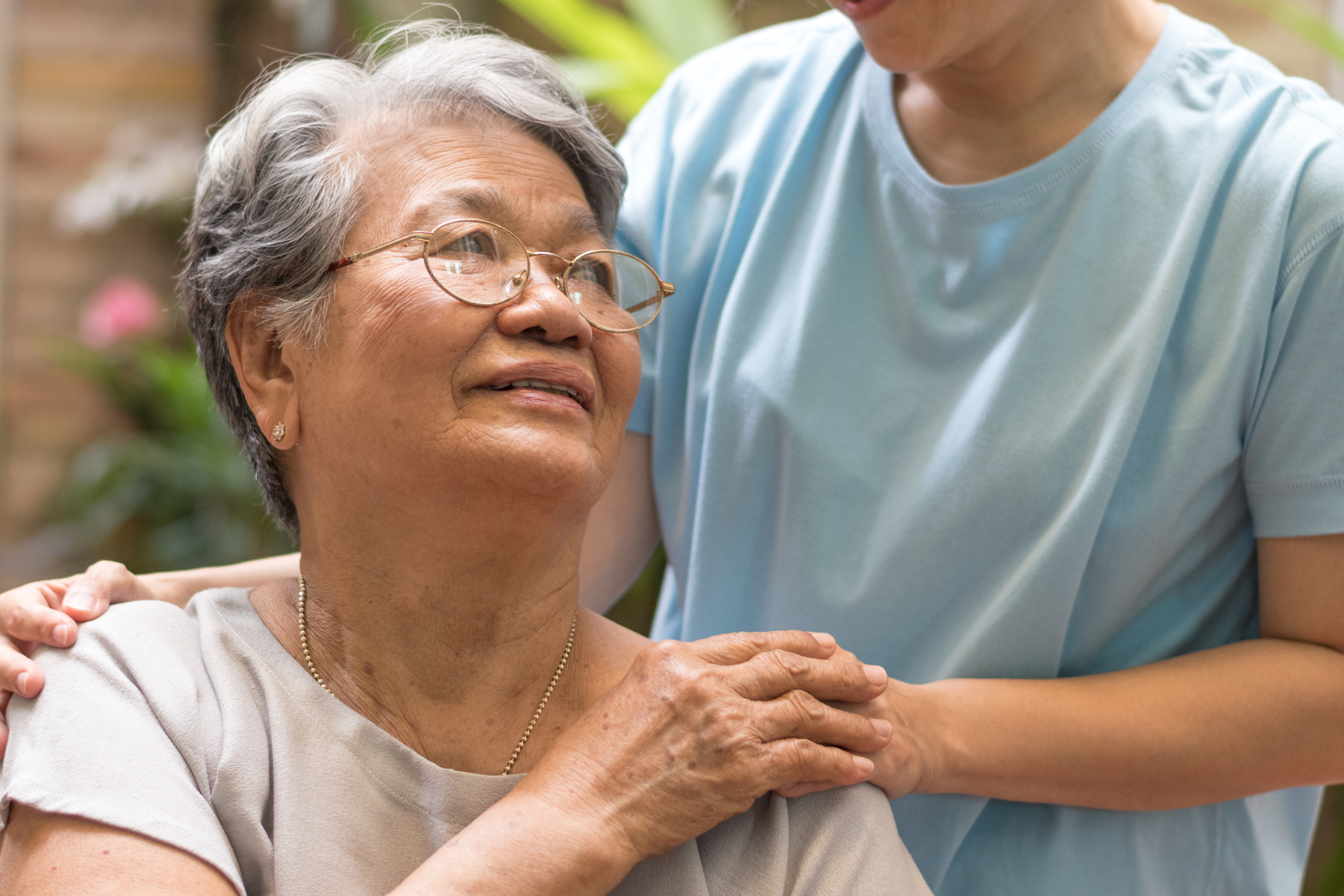There are many synonyms for “caregiver”: care partner, carer, family caregiver. In my research with caregivers, many have expressed that these terms don’t resonate with them. Some feel these labels artificially characterize or elevate them, when caring for a loved one is something they would obviously do. Others say these terms don’t capture all they do- that “caregiver” implies physical care, like bathing and dressing, when there is often so much more involved. When I have asked caregivers for alternate terms, they suggest, “life coach”, “cheerleader”, “grief counselor”, “interpreter”, “medical advocate”, “warden”, and “right hand”. Some say, “Caregiving is not who I am, it’s what I do.”
In this month of recognizing caregivers, caregiver voices can help us to appreciate more fully the breadth of caregiving activities and experiences. I share a few examples: “It’s providing many different kinds of support: practical support; emotional support; spiritual support.” “I help her to stay focused on staying positive, but also let her experience and feel the things that she needs to feel that go along with this disease.” “If I have to be the person that watches her at her most vulnerable and is there to lift her up, then that’s what I do. If I’m the person that has to listen to her scream because she’s feeling angry, then that’s what I’m going to be. It’s whatever I need to be in that moment.”
For those who have been or are caregivers, these words strike a chord. Whether caring for a child, parent, partner, grandparent, friend, or other relation, caregiving requires many hats and much resilience. It can be overwhelming to be a nurse, chef, and chauffeur on one day, and a therapist, scheduler, and spokesperson the next. Sometimes one wears all these hats and more in a single day. On other days, one’s only hat may be to be present, which can be more difficult than wearing many.
As skilled as caregivers are or learn to become, they are often not as good at caring for themselves. The sound advice to, “put on your own oxygen mask before you help others to put on theirs” can fall short, not because caregivers don’t acknowledge the need to sustain themselves, and not because they relish self-sacrifice, but because their energy for any more caregiving has simply run out. When a loved one has a chronic illness, caregiving is indefinite. Even short-term caregiving is challenging. When a loved one passes, caregivers may wonder for years if they cared well. Caregivers never really cease being caregivers as much as they evolve in the role, hopefully in positive ways. So while some caregivers may get to self-care, they likely need someone to care for them. When you are with a caregiver, put the oxygen mask on them. If you are a caregiver, accept the help. Caregiving necessitates a team effort. Whatever term we use for a caregiver, it should be plural.
----------

 Donation
Donation
